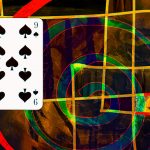The Ten Grounds of the Way: Innocence, light, radiance, courage, immediateness. (part 3)
To read the other parts of the discourse go to: The Ten Grounds of the Way

The second ground is vimal. It means innocence, purity, simplicity.
Innocence… remember the word. If you become too knowledgeable, you lose innocence. If you become a pundit you lose innocence. So don’t go on gathering beliefs and knowledge, otherwise your innocence will be corrupted. If you don’t know, you don’t know. Simply say, “I don’t know.” Accept your ignorance and you will be more innocent. And out of innocence, much happens. Never lose your childlike-ness. I don’t mean that you should be childish. To be childish and to be childlike are totally different. To be childish means to be irresponsible; to be childlike means to be simple, innocent, trusting.
The third ground is prabhakhari. It means luminousness, light.
Feel yourself as a flame, live as if you are an inner burning light, move with the inner flame. Do whatsoever you do, but always feel yourself as if you are made out of light. And by and by you will see a luminousness arising around you.
It is already there! If you help, it will arise – and you will have an aura.
Now Kirlian photographers can even take photographs of it. It is now very tangible.
Man is made of bio-electricity; everything is made of electricity. Electricity seems to be the basic component of all. Ask the physicists: they say matter consists of nothing but electricity. So everything is nothing but different formulations and combinations of energy. And Buddha says: Man is light. Light means electricity.
You have just to recognize the fact, you have just to cooperate with it, and you will become a great light – not only unto yourself; you will become a light to others too. And wherever you walk there will be light.
This is prabhakhari. the third grounding.
The fourth grounding is arsimati: radiance, aliveness, vitality.
The religious seeker should not be dull and dead. But ordinarily you will find these people. That’s why I am interested in telling you about these groundings – even Buddhists have forgotten.
If you see a Buddhist monk, you will see a pale, dead, dull person, sleepy, in a stupor, somehow dragging, somehow carrying the burden of life, not interested. Buddha says: Radiance, aliveness, vitality. This is the fourth grounding. Be alive because it is only on the wings of life that you will reach to truth. If you are dull you are lost.
And be radiant – because when there is no anxiety for the future and no desire for the future, then the whole energy is available to you. Then you can burn your torch from both ends, together.
The fifth is sudurjaya. It means adventurousness, courageousness, challenge-welcomingness. Whenever there is a challenge, welcome it, don’t avoid it. And whenever there is an adventure, don’t escape. Go on the journey, go on the trip.
Nobody ever loses anything by being adventurous. I am not saying that the path of adventure is full of roses – it is not. Roses are few and far between, and there are many thorns. But one grows, one becomes crystallized when one accepts a life of adventure.
Ordinarily people accept the life of security, of no adventure: a good job, a good house, a good wife, a good husband and good children – and people are satisfied. People are satisfied in living and dying comfortably, as if comfort is the goal.
Then they never grow, then they never achieve to any peaks, then they never achieve to what Maslow calls ‘actualization’. They remain just possibilities. It is as if a seed has chosen to hide in the house and is not ready to go into the adventure of falling into the soil. It is dangerous, because the seed will have to die. It is dangerous, because the seed does not know what will happen when he has disappeared. No seed has ever known what happens after the seed has died. How can the seed know? The tree may happen or may not happen.
Buddha says: sudurjaya – look at the far. Sudur – that which is very far, let that be your challenge. Don’t be confined to the comfortable, to the familiar, to the secure; don’t base your philosophy on the promises of a life insurance company. Have a little more courage, move into the unknown.
When you move into the unknown, the unknown moves to you. When you are ready to drop your securities, God is also ready to drop his mysteries. When you are ready to be nude and available, God is also ready to be nude and available. He responds, he exactly responds to you. He never goes further than you go. If you go towards him, he comes towards you; if you escape, he also escapes. Sudurjaya.
And then the sixth grounding; abhimukhi – immediateness, face-to-faceness, encountering that which is. Abhimukhi: face-to-face immediateness. Don’t bother about the past and don’t bother about the future. Face the truth as it comes, encounter the fact as it comes, and with no preparation, with immediateness.
A man who lives by preparation is a pseudo-man. In life there are no possibilities for rehearsals… but we all live through rehearsals. Before you go home you start preparing what you are going to say to your wife. Can’t you be immediate? Can’t you wait for the moment when the wife is there, and let what happens happen? But coming home from the office you are preparing: what is she going to ask, and what are you going to answer? Rehearsal… and then you are always clouded by your rehearsals. You cannot see that which is. You always see through your clouds. Those clouds are very distorting.
Buddha says: abhimukhi, immediateness – be alert and let there be response. Whatsoever the result, don’t be afraid of it. People start rehearsing because they are afraid of the results, so they want to plan everything. There are people who plan everything, every gesture is planned. Then their life is of course that of an actor – it is not real, it is not authentic, it is not true. And if your life is not true, then it is impossible for you to come to truth.
Osho, The Discipline of Transcendence, Vol 4, Ch 7 (excerpt part 3)
To read the other parts of the discourse go to: The Ten Grounds of the Way
Audio submitted by Siddho Varza




Comments are closed.